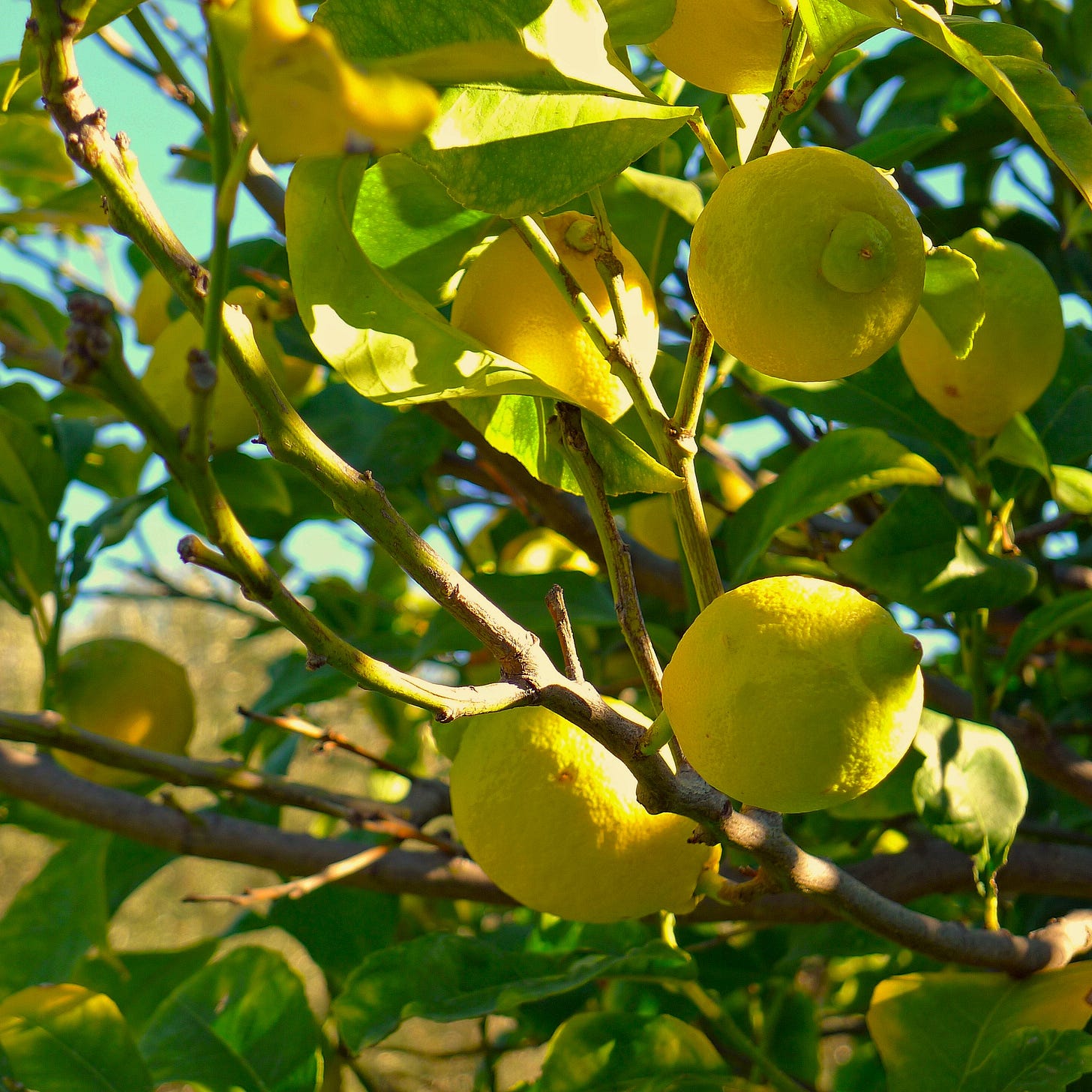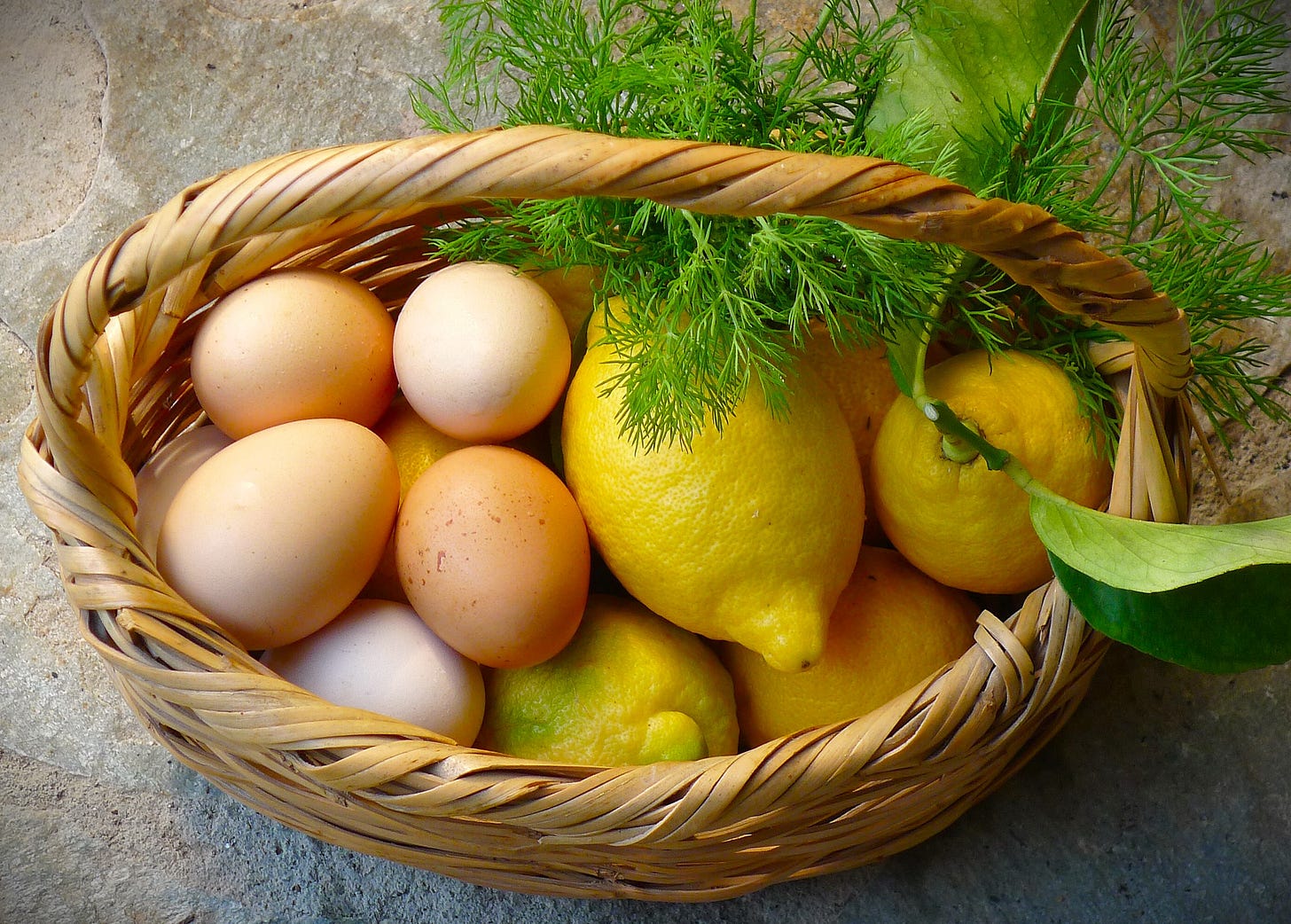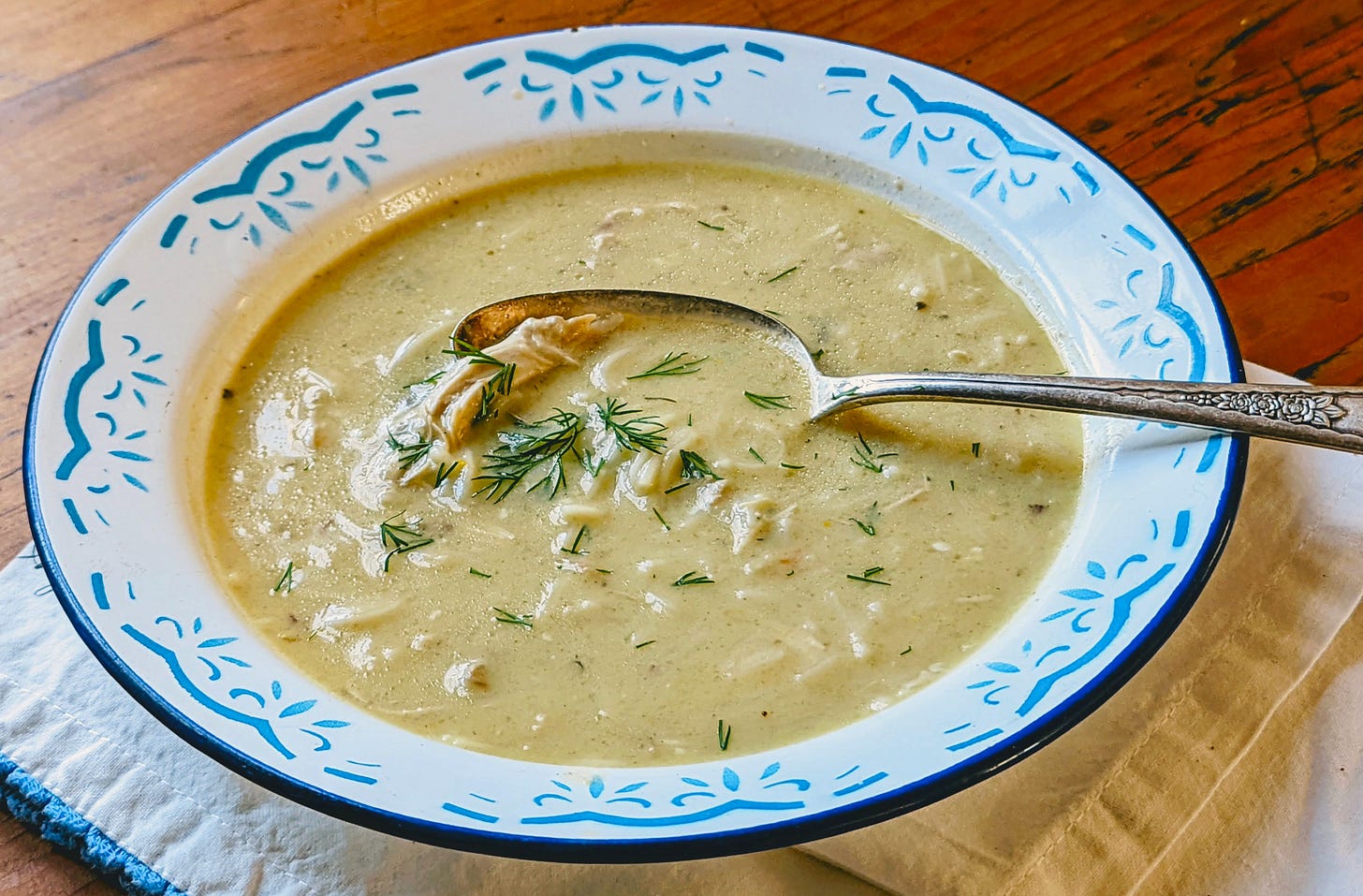Lemons: the Greek Perversion(!)
We take them for granted as they are ubiquitous and indispensable
Every Greek pantry has a steady supply of lemons which, along with salt, pepper, and of course olive oil, are considered essential ingredients. I didn’t give lemons much thought until some years ago.
I was sitting with my friend, food and music writer Fred Plotkin, at a trattoria in Otranto, a pretty little town in Puglia on the heel of the Italian boot. It was a hot summer afternoon and I was very excited because I was finally going to taste fava e cicorie (mashed fava beans and steamed greens) a traditional dish of the area.
While we waited for our meals, Fred and I discussed the similarities between Greek and southern Italian peasant cuisine. As we talked, I became more and more eager to taste the Italian version of what to me sounded a lot like our traditional fava (mashed fava beans or yellow split peas) with horta (boiled greens). The steaming plates of fava e cicorie arrived, drizzled with fragrant, green olive oil, and sprinkled with coarsely ground black pepper.
“Go on, taste it,” said Fred.
“I’m waiting for the lemon,” I replied instinctively, expecting the waiter to return with a plate of lemon halves.
“Fava e cicorie has no lemon,” Fred said. “Lemon is a Greek perversion!”
Fred was right, of course, and only then did I become conscious of the true obsession Greeks have with lemons. I couldn’t help thinking that the sweet and earthy mashed fava beans, the bitter greens and the fruity olive oil would be so much better with freshly squeezed lemon…
My mother used to keep a couple of juiced lemon halves by the sink, and she would rub her hands often with the lemons, to keep them soft and white. Even at the age of ninety-three, after a lifetime of cooking and cleaning, her hands were still silky and beautiful.
We have two old lemon trees in our Kéa garden.
They were in a sorry state when we came, more than 20 years ago, but with organic fertilizer and steady irrigation they produce fruit almost all year-round and give us lemons with thick and wonderfully aromatic peel. And it is not uncommon to find in one tree ripe, large yellow lemons, tiny green fruit, and heavily perfumed flowers at the same time.
Only in the hot, dry summer months, when Greece and particularly the islands are full of visitors and lemons are in high demand, do trees have hardly any fruit. So large quantities of lemons are imported from Chile and South Africa to meet the taverns’ and restaurants’ daily needs.
Last week Ruth Reichl at the end of her fascinating newsletter had a recipe for a ‘Tart Lemon Tart’ that I intend to make soon.
I treasure each lemon we harvest, and have come up with uses for each part of the fragrant peel and, of course, the flesh. I always make lemon liqueur, rolled lemon peel preserves or marmalade, and always have plenty of fresh or frozen lemon juice on hand to use in cooking and baking.
Avgolemono sauce
The most elegant of all Greek sauces, avgolemono (an emulsion of eggs with lemon juice) seems to have its roots in the Sephardic agristada.
It probably came with the Jews who settled in Greece after fleeing from Spain in the 16th century. Agristada and avgolemono both cleverly use eggs beaten with lemon juice to create an emulsion which thickens the cooking juices, much like the tangy crème fraîche in French Cooking. Avgolemono is used to flavor meat, fish and vegetables.
Chicken soup avgolemono, is usually made during the cold winter months, while magiritsa is the traditional Easter soup prepared with lamb innards, scallions and dill.
Indispensable flavoring
My fast preserved lemon wedges is inspired from the first half of the Preserve Lemon Chutney, a brilliant condiment created by the late chef Floyd Cardoz –victim of the corona-virus epidemic.
It complements beautifully skordalia (garlic sauce), as well as potato salads, boiled greens (horta), steamed broccoli or cauliflower, and of course poached fish or chicken. I like to julienne the preserved lemon pieces and use in salad dressings, and to flavor freshly cured olives, and all kinds of bean salads.
Lemon’s Origins
Though the exact origin of the lemon is unknown (some think it came from Southeast Asia, others believe it originated in northern India) it is thought that lemons were introduced to the Mediterranean by the Arabs, who brought them from Persia around the 11th century.
They were immediately adopted as their fragrant sour juice perfectly complemented the rich-flavored Greek olive oil. Lemons soon replaced vinegar and the juices of unripe grapes, pomegranates, and all kinds of tart fruits that had been used to provide acidity to both sweet and savory dishes ever since antiquity.
This time of year our large lemons are not too sour so we peel half their zest, slice them thinly, and make them into a refreshing, tart salad/relish drizzled with plenty of fruity olive oil. It perfectly complements grilled meat, poultry, and of course fish.









Inspirational post, Aglaia! Particularly love the lemon by the sink as hand-tonic!...I'm starting immediately - hope it's not too late!
THANKS for liking our post! Costas and I LOVE your beautiful and obviously very kind dog!